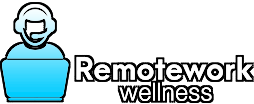
As climate change continues to impact our world, more and more people are thinking about relocating to areas less susceptible to natural disasters. Remote workers in particular have the freedom to choose where they live and work, making this decision a little easier. However, moving to a new area is never easy, and it’s important to consider multiple factors before making a decision. Today our guest writer, Eleanor Wyatt provides some tips and resources specifically for remote workers who are thinking about moving because of climate change-related events.
Compare Living Expenses
Before making a final decision about moving to a new area, you should compare the cost of living in your current location to the cost of living in the new area. Make sure to factor in everything, including rent or mortgage, utilities, food, entertainment, and transportation costs. Living in a different area with lower costs of living might help you save more money in the long run.
Dust Off Your Resume
If your current job doesn’t suit your needs, you could always update your resume and look for another. Obviously, that can be a bit stressful, but you can give yourself a big advantage over the competition if you use online resources and find out how to write a resume so that it’ll really emphasize those hard-won skills. Also, it’s a good idea to brush up on your interview skills and practice your responses to questions that prospective employers might ask if and when you make it to the interview stage.
Know the Local Laws
Understanding environmental laws and regulations in a potential new home is crucial for remote workers moving due to climate change. Different states and cities have different environmental policies and regulations, which can impact daily life, especially if one is passionate about sustainability. Therefore, it’s important to research these laws and regulations thoroughly before making a final decision on where to move.
Energy-Efficient Homes
When searching for a new home, look for features that can help you save money on energy bills while reducing your carbon footprint. Homebuyer.com notes that some examples of energy-efficient features include double-paned windows, insulation, and solar panels. While these features could be a little more expensive up front, they can help you save money in the long run while also helping to reduce your impact on the environment.
Observe the Weather
If you’re moving to an area susceptible to natural disasters, it’s essential to monitor weather forecasts regularly. Travelers suggests creating an emergency preparedness kit with all the necessary supplies in case of a natural disaster. Make sure you have a plan in place in case of evacuation or shelter-in-place orders.
Participate in the Community
Connecting with the community is crucial when moving to a new area. Join local groups or clubs that share your interests, and attend community events. Getting involved in the community can help you make new friends, learn about local environmental issues, and get more engaged in efforts to protect the environment.
Volunteer
Volunteering for local environmental organizations is an excellent way for remote workers to contribute positively to the environment while connecting with their new community. By finding organizations that align with their values and interests, remote workers can offer their time and skills to make a difference in their new homes. Volunteering provides an opportunity to make meaningful connections and be a part of something bigger than oneself.
Business Matters
There are also some special considerations to keep in mind when you’re either moving your business or planning on starting a business in your new location. There are various types of business structures, and choosing the right one takes a little research. An LLC is a popular choice, as it comes with certain tax advantages, limited asset liability, and operational flexibility.
Remote workers who are moving due to climate change-related events need to be thorough in their research of the new area. By comparing the cost of living, dusting off your resume, and getting involved in your community, remote workers can make a smoother and safer transition. Overall, preparing in advance and being aware of the potential climate-related challenges in the new area can help remote workers successfully adjust to their new homes.
Hilltop Secretarial Service is here to help you streamline your efficiency. Call 877-897-1859.




